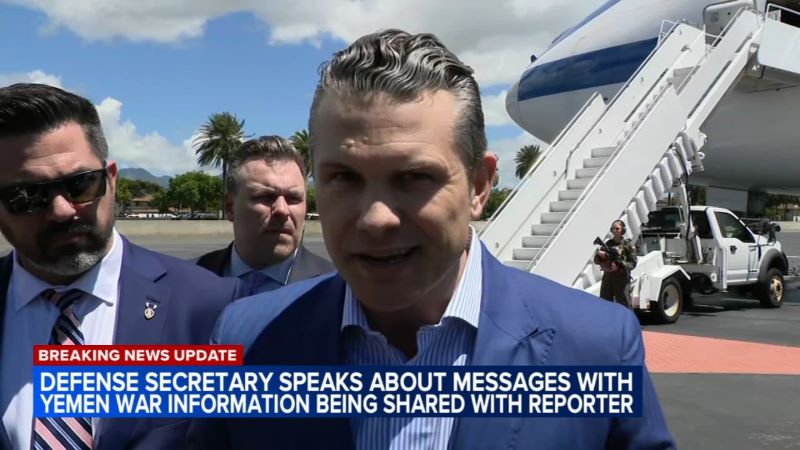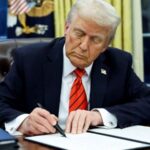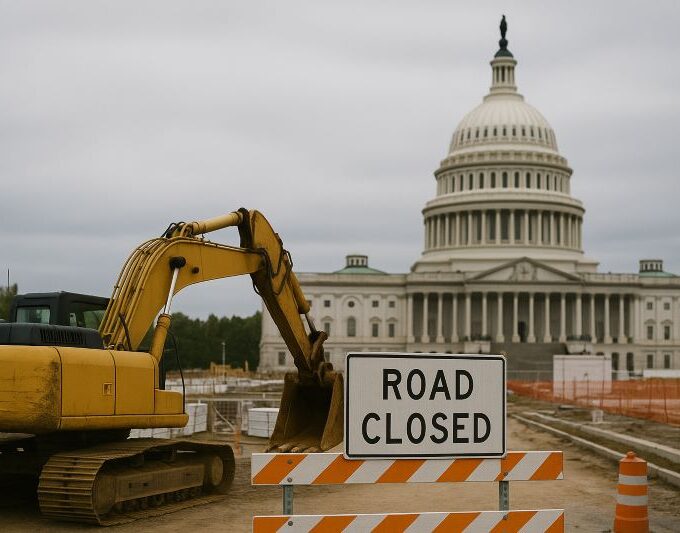In recent years, many parts of the globe have been embroiled in wars and conflicts, with the war in Yemen undoubtedly being one of the most complex and painful. A long-standing proxy war in the Middle East, the Yemen war has been going on for years, resulting in the displacement of millions of people and countless lives lost. Recently, however, the U.S. government made a serious mistake in handling news coverage of the war in Yemen: it mistakenly dragged journalists into a ‘group chat’ about the war in Yemen, an error that not only drew widespread attention, but also brought the issue of U.S. government transparency in news management and information disclosure into the public spotlight once again.
The Cause of the Incident
The cause of the incident was a mistake made by the U.S. government. According to several journalists with knowledge of the matter, the U.S. government, through its military and diplomatic channels, mistakenly dragged a reporter from the Atlantic Monthly into a ‘group chat’ on a Yemen war-related messaging system. The group chat was supposed to be used only by military commanders and senior officials to pass on the latest intelligence and operational instructions on the battlefield in Yemen. However, due to an operational error, journalists from several news organisations were suddenly added to this highly sensitive group chat. They gained direct access to information that should not have been made public.
The information in the group chat concerns the operational plans, strategic deployments and military decisions of the United States and its allies in the war in Yemen. These elements are highly classified, and any unauthorised disclosure could have serious implications for national security and strategic operations. While journalists have stated that they did not actively request this information, such leaks have raised widespread concern and questions.
National Security and Journalistic Ethics
This mishandling has exposed the loopholes in the U.S. government’s information management. Firstly, the content and information involved is sensitive information about the military operation plans, tactical deployment, and other sensitive information about the US and its allies in Yemen. Once this information is made public, it may affect the course of the war and even provide a tactical advantage to the opposing forces. The war in Yemen itself is already an area full of complex diplomatic and military games, and any form of leakage could lead to damage to national security.
Second, from the perspective of journalistic ethics, the fact that journalists entered a group chat set up exclusively for military commanders and government officials also meant that the press played an uncontrollable role in the process. The role of journalists is to obtain information through legitimate means and report the truth, not to passively ‘stumble’ into a sensitive discussion. This incident has led to a wide-ranging discussion about journalistic practices and how journalists should maintain ethical boundaries when reporting on war. The question of whether journalists have a responsibility to inform authorities of sensitive information they have access to, or whether they should voluntarily withdraw from such group chats, which may be of national security concern, came to the forefront of the incident.
The U.S. Government’s Response and Handling
The U.S. government’s response to this misstep can be described as relatively low-key. After an initial understanding of the situation, the US Department of Defence and State Department said that it was an ‘operational error’ and that measures had been taken to resolve the problem. A spokesman for the Department of Defence said they had explained the situation to the affected journalists and asked them to delete the relevant information to avoid further proliferation.
However, despite the U.S. government’s response and attempts to control the situation, the impact of the incident has not easily subsided. The U.S. media and the international community have expressed concern about the government’s carelessness in handling information and news dissemination, arguing that the incident further exposed the U.S. government’s loopholes in news regulation and information protection.

The Role of Journalists and the Complexity of War Reporting
As the fourth power, the role of the news media in war reporting is crucial. Journalists are not only disseminators of information, but also defenders of the public interest, and their task is to report the facts objectively and impartially to reveal the truth in war. However, the work of journalists in conflict zones is often accompanied by great risks. Especially when it comes to sensitive issues such as national security and military strategy, how journalists can balance the public’s right to know with the protection of national security is always a complex moral dilemma.
This incident has led to a re-examination of journalists’ responsibilities when reporting on war. Should journalists proactively avoid participating in or gaining access to discussions that might reveal state secrets? If journalists learn of sensitive information, how should they handle it appropriately? There are no easy answers to these questions, but in any case, the press needs clearer boundaries to ensure a balance between information transparency and national security.
Questions about the U.S. Government’s Information Management
This incident undoubtedly raises questions about the United States Government’s information management capabilities. The journalist’s ‘mistake’ in the government’s military group chat should not have happened, especially considering the highly sensitive nature of information in modern warfare and the potential threat to national security. For the U.S. government, this is not only a management error, but also exposes some loopholes in its military operations and information transfer.
Many people believe that in such a sensitive situation, the Government should have paid more attention to the protection of information and adopted stricter control measures to ensure that such information would not be disseminated by mistake. Moreover, in terms of the government’s response, despite the swift action taken after the incident, the very fact that this incident occurred shows the imperfections in the government’s information transmission and confidentiality.
Response and Reflection of the International Community
In addition to the U.S., the international community has expressed concerns about the incident. Many international news organisations have expressed concern about the involvement of journalists in sensitive military discussions and have called on governments to abide by international journalistic ethics in their war reporting to ensure that the risk of information leakage and misuse is minimised. At the same time, the international community has also criticised the US government’s mishandling of information management, which could affect information transparency and press freedom on a global scale.
The incident has led to a profound reflection that in this era of highly interconnected information, the duty of journalists is not only to report news, but also to safeguard the public’s right to know without jeopardising national security and the public interest. Whether the U.S. government can avoid the recurrence of similar incidents through more effective information management will be a key consideration for its information transparency in global politics.
Lessons from Information Leaks and Future Prospects
The U.S. government’s misdirection in pulling journalists into a group chat on Yemen war plans was undoubtedly a shocking political incident. The mishandling not only sparked a discussion about the ethics of journalism but also exposed the government’s vulnerabilities in information management and real-time military communication. In the future, how to balance the delicate relationship between press freedom and national security in the globalised information age will be an important issue for governments and news agencies. It is hoped that this incident will provide a warning to all parties and prompt the Government to adopt stricter information protection measures, along with information disclosure and transparency.












